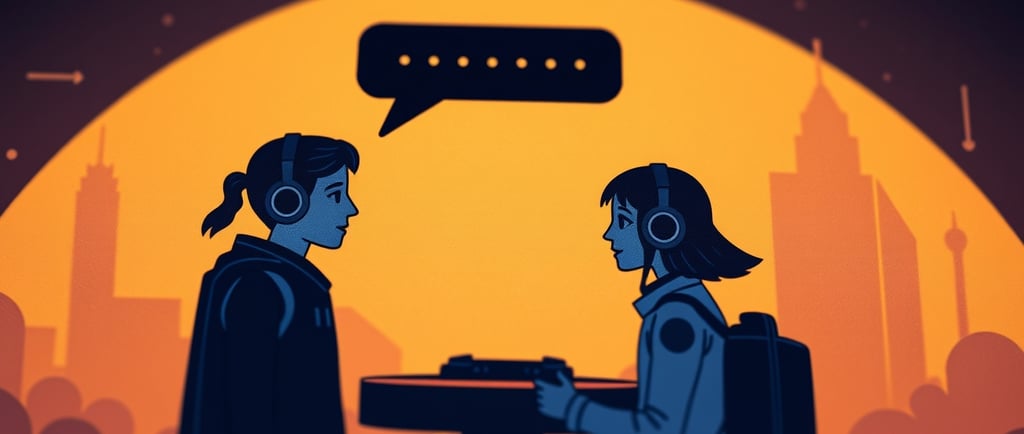AI is Revolutionizing the Gaming Industry
AI is radically transforming the gaming world, but what is the most important point to explore? Among all the aspects, the most impactful on the future of gaming is the use of generative AI to create more realistic and interactive NPCs (Non-Playable Characters). This has a significant effect not only on player immersion but also on the development process itself.
AIGAMINGNPC
Matteo Cattapan
2/20/20252 min read


Key Point: The Evolution of NPCs with AI
Traditionally, NPCs in games have pre-programmed behaviors, with static responses and predictable paths. This limits the player experience, making interactions feel repetitive and unnatural.
With the rise of generative AI, NPCs can now:
✅ Adapt to player actions in real time.
✅ Learn from previous interactions to respond more realistically.
✅ Develop unique personalities, avoiding repetitive dialogue and actions.
Practical Example:
Imagine an open-world RPG where a merchant NPC not only responds with generic phrases but remembers the player, offers discounts for loyal customers, or changes behavior based on the player’s reputation.
Games like Cyberpunk 2077 and Red Dead Redemption 2 have attempted to create more dynamic NPCs, but with full AI integration, custom interactions may soon become a gaming standard.
Key Point: The Evolution of NPCs with AI
Could AI-driven NPCs make games too easy? If an NPC adapts completely, it could predict player moves too well, removing the challenge from the game.
This raises the need for a balance between AI-driven adaptation and game design.
For example, in a strategy game, AI could adapt dynamically but within set limitations to maintain balanced competition.
Personal Solution: How to Use AI Wisely in Games?
If I were to develop a game using generative AI to enhance interactions, I would implement a hybrid system:
🎭 Contextual AI – NPCs learn from the player, but within a predefined range to maintain game balance.
📖 Dynamic Storytelling – Instead of pre-written responses, an AI-powered engine could generate custom dialogues based on player choices.
🔄 Increased Replayability – AI-driven variations ensure every playthrough is different from the last.
Example:
In an adventure game, if the player betrays an NPC ally, the AI could evaluate the behavior and decide whether to take revenge, forgive, or ignore it—making every decision truly impactful.
Conclusion: Where Are We Headed?
Generative AI in video games is a potential game-changer, but it requires careful management to avoid turning into an obstacle rather than an enhancement.
When balanced correctly, it can transform games into ever-evolving experiences, where each playthrough feels new and unique.
📌 My prediction? In the next five years, we’ll see games where the story writes itself based on player decisions, making the traditional concept of “multiple endings” obsolete. 🚀
What do you think? Do you prefer AI-driven interactions, or do you believe it could ruin the gaming experience?

